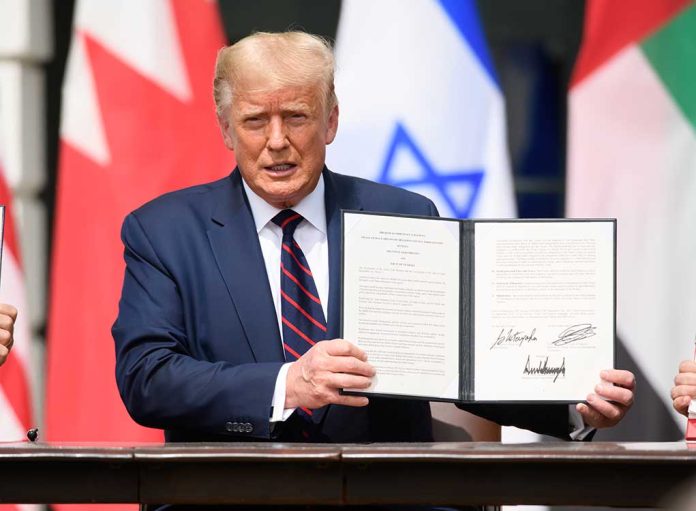
President Trump averts trade crisis by securing last-minute deals with Mexico and Canada, postponing tariffs in exchange for enhanced border security measures.
Top Takeaways
- Trump delays 25% tariffs on Canada and Mexico for 30 days after securing agreements on border security and drug trafficking.
- Canada commits to a $1.3 billion border plan, including new personnel and technology, and the appointment of a fentanyl czar.
- Mexico agrees to deploy 10,000 troops to the U.S.-Mexico border in response to tariff threats.
- The U.S. agrees to increase efforts to prevent the trafficking of high-powered weapons into Mexico.
- Tariffs on China set to proceed, with Trump planning discussions with President Xi Jinping.
Trump’s Tariff Strategy Yields Concessions
President Donald Trump has successfully leveraged the threat of tariffs to secure significant concessions from both Canada and Mexico, temporarily averting a potential trade war. The President agreed to pause the implementation of 25% tariffs on Canadian and Mexican imports for 30 days, allowing time for further negotiations and implementation of new security measures.
In a call with Canadian Prime Minister Justin Trudeau, Trump secured a commitment for a comprehensive $1.3 billion border security plan. Trudeau outlined the details of Canada’s response, stating, “We will list cartels as terrorists, ensure 24/7 eyes on the border, launch a Canada-U.S. Joint Strike Force to combat organized crime, fentanyl and money laundering.”
Nobody applies leverage like Trump. Nobody.
I am an advocate of free trade on a principled level when it doesn't threaten key national industries and national security (which is why we should tariff China). In a vacuum, trade wars are not good or easy to win.
BUT Trump saying…
— Ben Shapiro (@benshapiro) February 3, 2025
Mexico’s Response to Tariff Threats
Similarly, Mexico has taken significant steps to address Trump’s concerns about illegal immigration and drug trafficking. Mexican President Claudia Sheinbaum announced the deployment of 10,000 troops to the U.S.-Mexico border in response to the tariff threats. This move demonstrates Mexico’s commitment to enhancing border security and curbing the flow of illegal migrants and drugs into the United States.
“There is a relationship of respect and of equals, which is what is important,” said Sheinbaum, emphasizing the diplomatic approach taken in negotiations with the U.S.
The U.S. has also agreed to increase efforts to prevent the trafficking of high-powered weapons into Mexico, addressing a key concern of the Mexican government. This bilateral approach to border security issues highlights the complex nature of the challenges faced by both nations.
Economic Implications and Market Reactions
The threat of tariffs on Canada and Mexico, along with ongoing trade tensions with China, had initially caused turbulence in the stock markets. However, the markets recovered following Trump’s announcement of the agreements with Mexico and Canada. The President’s willingness to negotiate and find solutions has been viewed positively by analysts, who see it as a sign of his commitment to achieving political victories while balancing economic concerns.
Despite the temporary relief, concerns about potential inflation impacts remain. Federal Reserve officials have warned that businesses may pass on increased costs to consumers if tariffs are ultimately implemented. The ongoing trade negotiations with China add another layer of uncertainty to the global economic outlook.
Looking Ahead: Challenges and Opportunities
As the 30-day negotiation period begins, all parties involved face the challenge of turning these temporary agreements into lasting solutions. The U.S. will be closely monitoring the implementation of the promised security measures by Canada and Mexico. Meanwhile, the ongoing trade discussions with China remain a critical factor in the broader economic landscape.
“I am very pleased with this initial outcome, and the Tariffs announced on Saturday will be paused for a 30 day period to see whether or not a final Economic deal with Canada can be structured,” stated President Trump, highlighting the potential for further negotiations and agreements.
The coming weeks will be crucial in determining the long-term success of Trump’s tariff strategy and its impact on North American trade relations. As these developments unfold, the administration’s ability to balance economic interests with national security concerns will be put to the test.






















